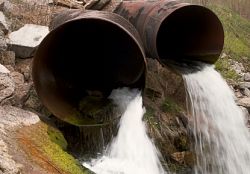

According to a new study from the Cornish Plastic Pollution Coalition, dozens of UK wastewater treatment plants are releasing millions of tiny beads into seas around the UK, contributing to the problem of plastic pollution in the oceans. The tiny plastic pellets, known as Bio-Beads, are used to filter chemical and organic contaminants from sewage.
Bio-Beads are the last step in the process of cleaning sewage before the treated water is released into rivers or the sea. Currently, there is no mechanism to trap lost Bio-Beads if there is a spill. The report details a number of spills and near misses in recent years. It also claims that the Bio-Bead system is too vulnerable to losses, and that there must be a system of safeguards put in place.
These pellets are only 3.5mm wide, meaning they are hard to spot and almost impossible to remove, but they can cause significant harm to wildlife. Industrial pellets and other small bits of plastic are mistaken for food by fish, birds and other marine animals. These animals can be killed, either by digestive blockages or the high concentrations of pollutants adhering to the plastics. Human health can also be affected when plastic pollution enters the food chain, as a study by Plymouth University in 2016 found that one third of UK-caught fish contained plastic.
The report's author, Claire Wallerstein, said: "We are learning more all the time about the environmental impact of consumer microplastics in wastewater such as laundry fibres, cosmetic microbeads and tyre dust. However, it now seems that microplastics used in the wastewater plants’ own processes could also be contributing to the problem."
South West Water welcomed the report, but called for more research. They claimed that there was no evidence of Bio-Beads currently being released into the environment from its sites. Although they did accept there had been spills in the past, these were subsequently cleaned up, and only nine of its 655 sites use Bio-Beads. South West Water further claimed that most of the evidence in the report was anecdotal, rather than factual, and that the report insufficiently acknowledged other potential sources of plastic pellets.